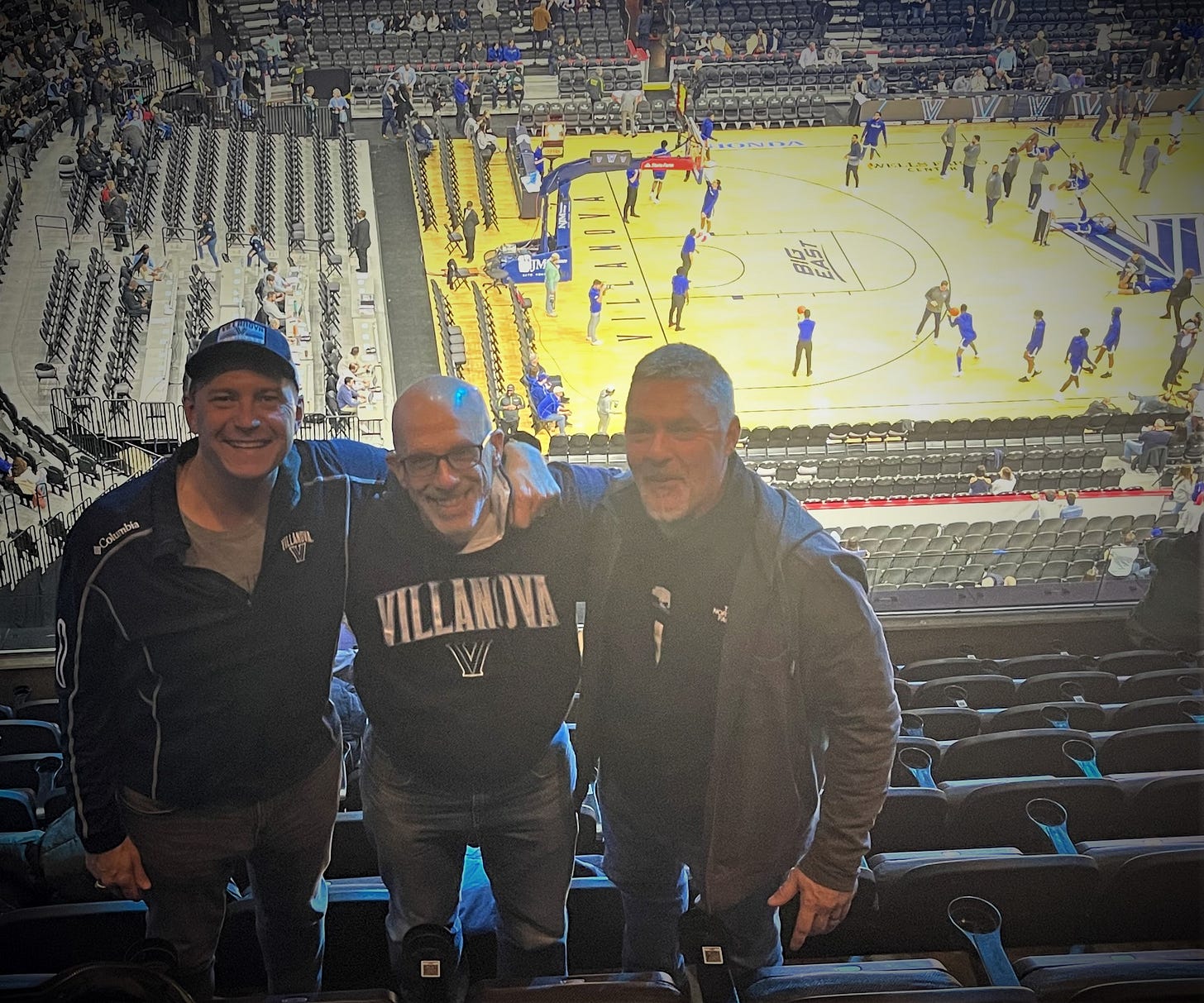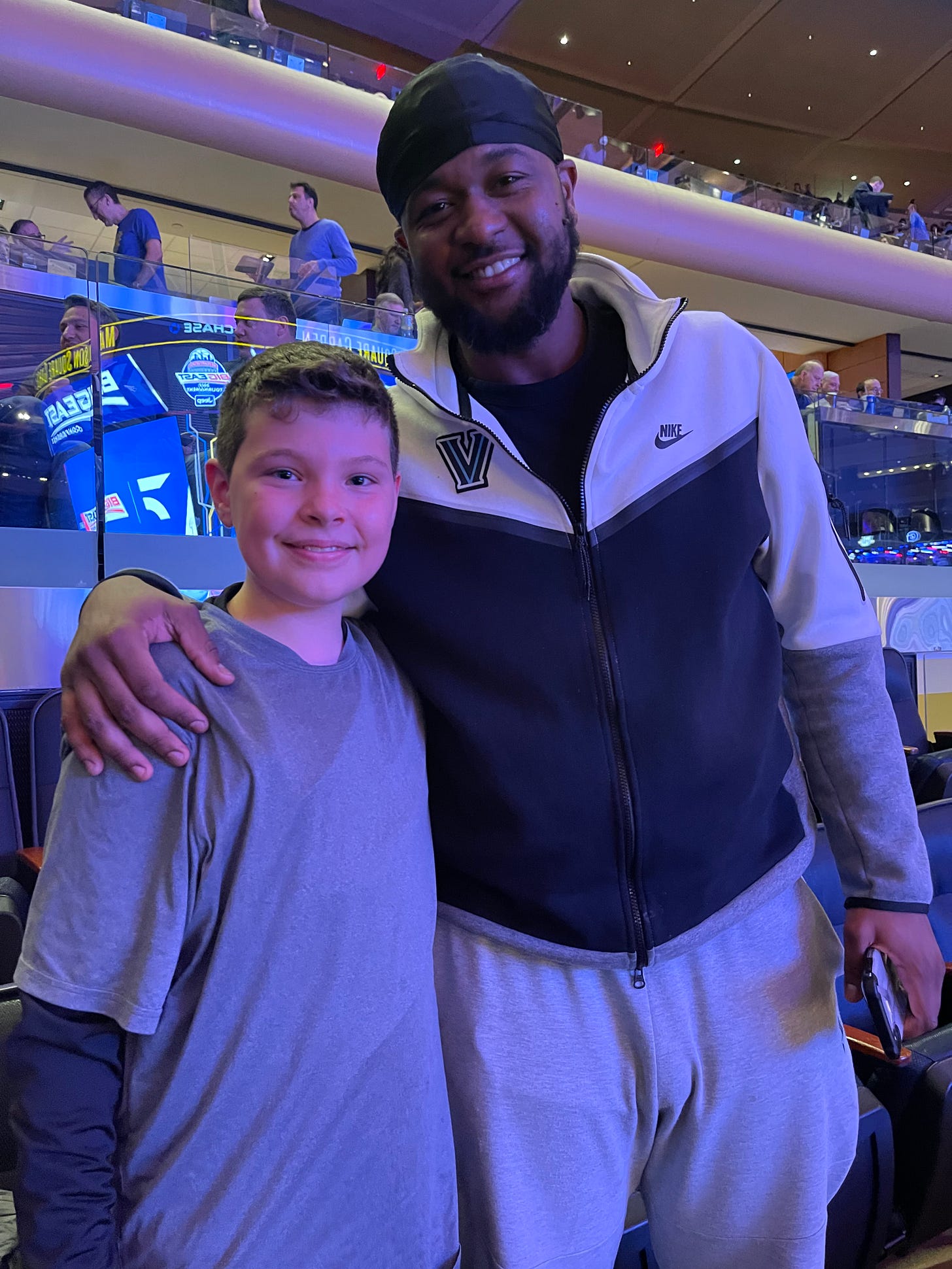Sports patriotism
How rooting for your team with others can build relationship capital and a sense of connectedness to community, key ingredients for inclusive nationalism.

Last night’s Super Bowl, the annual final championship game in American professional football, will rank as the biggest television event of the year, as it does most years.
It’s a night when tens of millions of people watch the same program to see how the teams do and watch how creatively advertisers hawk the wares of big corporations and this year a religion. At a time of fragmentation in the media landscape marked by a seemingly endless torrent of streaming television shows and movies, the Super Bowl remains one of the few times when so many Americans tune into the same channel and have a chance to get closer to the same wavelength, even if they aren’t rooting for the same teams.
I watched the game at a small party we hosted at home with family and friends. It capped off a nearly perfect weekend that involved watching other sports: watching my son’s basketball team play a couple of games early in the weekend and going on an overnight trip to see Villanova men’s basketball play in Philadelphia Saturday night with two life-long friends.
All the time I spent this weekend watching and talking sports with others is par for the course — I was raised in a family that watched and played several sports, and my family spends a lot of our free time with others going to games or playing sports.
Super Bowl weekend got me thinking about how sports are a key part of the fabric that helps build strong relationships, communities, and the sense of inclusive nationalism we write about here at the Liberal Patriot.
Building connections that last
Think back to your life when you perhaps played a sport or went to a sporting event with others. Even if you’re just a casual fan, you’re likely to have a vivid memory and emotional connection to a time when you played on a team or saw a game that will stay with you forever. It’s likely that you’ll remember the people you were with and how you all felt.
For me, seeing the Philadelphia Phillies relief pitcher Tug McGraw leap off the mound in celebration after striking out Willie Wilson of the Kansas City Royals to win the 1980 World Series is etched in my memory. My parents allowed me to stay up late on a school night in late October to experience that victory. Years later, I let my own son (then five years old) stay up late on a school night to watch Kris Jenkins of the Villanova Wildcats hit a shot at the buzzer to win the men’s college basketball championship in 2016 over the Tar Heels of North Carolina.

More often than not, we have these experiences through television. But if you’re lucky enough to go to games, the experience of being with others at a live sports event expands that sense of connectedness with others and gives us the notion that we’re part of something bigger than ourselves. Just think about how odd it seemed during the COVID-19 pandemic to watch sports teams compete in front of empty arenas. It was like watching musical performances on Zoom – important to help us get through that rough first year of the pandemic, but something essential about it was missing. As John Halpin reminded us about America’s live music scene, live sports bounced back strongly as the pandemic faded, and that can all help us feel more connected with each other in positive ways.
In reflecting on the Philadelphia Eagles, the football team that appeared in last night’s Super Bowl, University of Pennsylvania religion professor Anthea Butler likened the team’s Super Bowl appearance to a “peak religious experience” for the city, the effervescence of feeling great joy, shared with others in all the rituals and rhythms that are similar to a religion.
At a time of such big divisions over politics in America and the world, sports can play a role in sawing off the rough edges, connecting people on a more basic level, and reminding each other of our shared humanity and the triumphs and defeats that come in everyone’s lives.
Remember the most recent World Cup last year and how the images of fans supporting their teams were mostly positive displays of nationalism in a healthy competition? The image of Americans and Iranians embracing each other after the match was over showed the mutual respect that is possible between people who come from two very different countries separated by so many things over decades.
Sports may not be your thing. But there are other parts of a full life that help shape who we are and connect us with others outside of our jobs and political views, like music and art. As Peter Wehner reminds us about sports, it’s not “just a game”:
Sports played at a high level is “only” a game in the same way the music of Ludwig van Beethoven or Bruce Springsteen is “only” music or the paintings of Leonardo da Vinci and Claude Monet are “only” art.
Playing and watching sports with others often gives us a sense of rootedness and being anchored in a particular place. I’ve lived more than a quarter century now in the Washington DC area or overseas for most of my working career, but I still feel the connections formed to Philadelphia area sports teams that were formed when I was growing up and always will.
For sure, sports can come with some bad things like excessive drinking and gambling. There are also some toxic aspects of it that undercut a sense of community and foster divisions between people. But like most things in life, the positives outweigh the negatives if the game is approached with the right mindset and a balanced sense of proportion.
Last night’s Super Bowl game didn’t end the way I had hoped. Unlike the 1980 World Series, the team from Kansas City beat the team from Philadelphia. It was still a fun, memorable game. I admired the grit and resilience of Chiefs quarterback Patrick Mahomes after he came back in the second half after hurting his ankle and led his team to victory over my team.
Most of all I enjoyed sharing the time with family and friends in carefree banter about the game and commercials, even though I was disappointed with the final result.
But it’s a disappointment that’s already fading fast: pitchers and catchers report this week.


